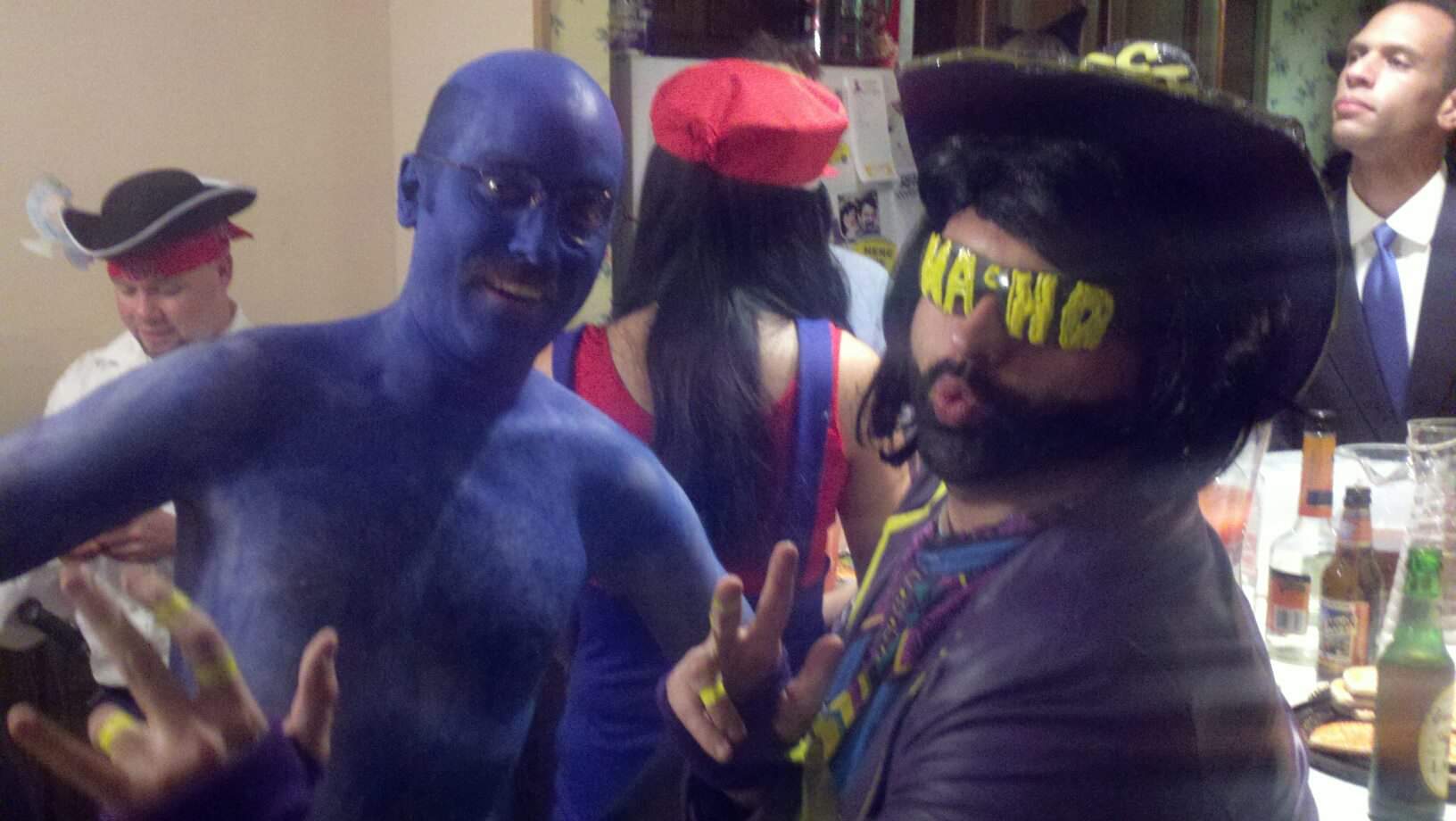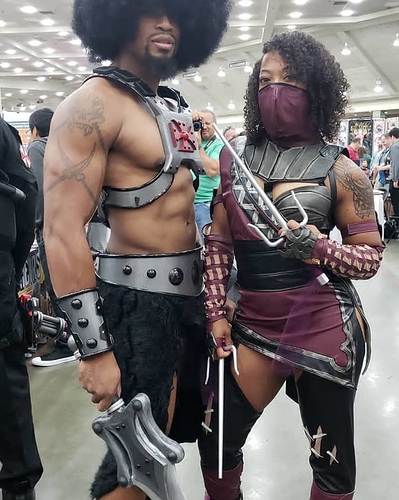It’s that time of year again!
Spawned from a discussion here:
Based on this article:
I’m going to specifically address this:
First off, the “woman dressed as Diana Ross” is LuAnn De Lesseps, who is a 100% garbage person (e.g. she’s a “Real Housewife of New York”). You’ve already thought about her costume more than she did when she put it on, so let’s no try to discuss intent there too much.
W/r/t representation and celebration, my general response would be to let black people decide whether they feel okay with the sacrifice of curtailing representation if that’s the cost of stopping racially negative blackface. Generally, it seems like that’s the consensus that people feel the tradeoff is appropriate. (There is another, ancillary discussion about white-washing by, e.g. casting white or light-skinned black people as historical figures who had darker skin. However, that’s more a question around representation in media and standards of beauty, and so they aren’t really relevant when discussing individuals’ costumes.)
So, with a couple of caveats out of the way, let’s drill down into costumes a bit.
One general rule of thumb (with exceptions, but it’s a good start) is that it’s okay to dress up as a Person or a Job. It’s not okay to dress up as a Culture. So, dressing up as Moana or The Black Panther is probably okay. Dressing up as “an indian princess” or “African person” is probably not*. Diana Ross is a Person, we aren’t just dressing up as “black person”, so we’ve cleared that first hurdle.
The next question is “what are the important things about this person?”. For Diana Ross, we can start to make a list: She’s a singer, so we can selects period appropriate showbiz clothing or maybe a microphone. She’s also black, and is commonly associated with a large afro. So we can inspect those. The question becomes: for the purposes of this costume, is her skin tone important? When you darken your skin to adopt a costume, you’re implicitly identifying color as an important part of the costume. So, you’re saying that Diana Ross was first of all, a black person, and secondly, was a Motown singer. It’s a racist position because you’re highlighting her color as the most important part of her self that you’re adopting.
Now, in many cases, Blackness might well be important because it’s a fundamental part of the person’s identity. You could dress up as, say, Dr. King, whose blackness was a foundational aspect of his public image. The same argument can be made about Ross. So now you simply have to measure the tradeoffs of executing the costume vs. invoking the historical spectre of blackface and racial oppression. If your goal is to celebrate Diana Ross, you need to be sure that the intent celebration won’t be drowned out by the reality of historical context. And if you can’t execute the costume without changing the color of your skin, then maybe that’s just not a costume avenue that’s open to you.
Sorry, but the legacy of racism hurts us all. Let’s just hope to be so lucky that “not getting to wear a costume” is the worst thing that we experience.
Coloring your skin purple to be Thanos or Blue to be an Andorian doesn’t have those costs associated with historical racism. So, there’s no trade-off to be had there. Paint away. This also explains why the Afro (arguably almost as much of a racial signifier as skin tone) isn’t quite as charged a topic. While natural black hair has been a point of cultural contention, it doesn’t have overtones of racism as heavy as those associated with blackface.
What’s the overall takeaway though? As with everything around these kinds of issues, at the end of the day nobody is saying you “can’t” do anything. You’re free to dress up in a racist or an appropriative way. The point is just that you need to be aware that many other people are going to see it and consider it racist. It’s up to you to decide how comfortable you are with people viewing you that way, and to act accordingly.
* We can talk about the Maui costume controversy or about Pocahontas specifically in detail later


